UK benefits a magnet to migrants, says Calais mayor
- Published
Calais mayor Natacha Bouchart said there were "aspirational" reasons for migrants to want to come to the UK
Illegal migrants see the UK as a "soft touch" and its benefits system acts as a "magnet" to them, the mayor of the French city of Calais has told MPs.
Natacha Bouchart added that the fences placed around UK border controls set up in the city "make everybody laugh".
"These people are ready and prepared to die to come to England," she told the Home Affairs Committee.
Calais has struggled in recent months with increasing numbers of migrants arriving and trying to get to the UK.
Prime Minister David Cameron has urged "action right across the board" and "full-hearted cooperation between the British and French authorities to make sure we can stop people getting on to trains, getting on to container lorries or other vehicles and coming across the Channel".
His official spokeswoman said the government's focus was to study "pull factors and address them."
Hours after Ms Bouchart appeared in front of MPs, a Conservative minister appeared to imply that Parliament did not have control over immigration and would never be able to stem the free movement of people within the European Union.
Nick Boles told Total Politics magazine, external that the government had taken "some pretty draconian steps" to limit immigration from outside the EU but "all that has done is reveal to people that there's another big chunk of it that we can't control, and that troubles them".
French police used tear gas this week as hundreds of migrants tried to climb on to trucks bound for the UK.
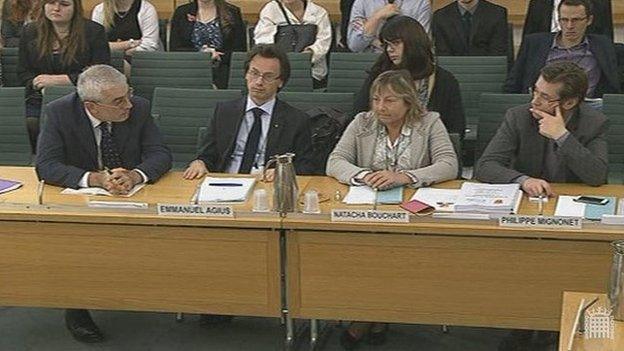
Natacha Bouchart, second from right, answered questions via a translator
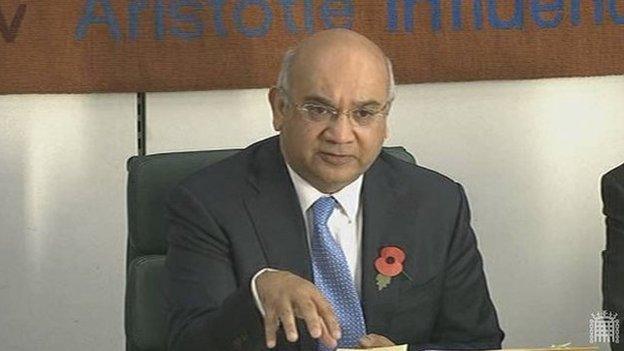
Keith Vaz chaired the hearing
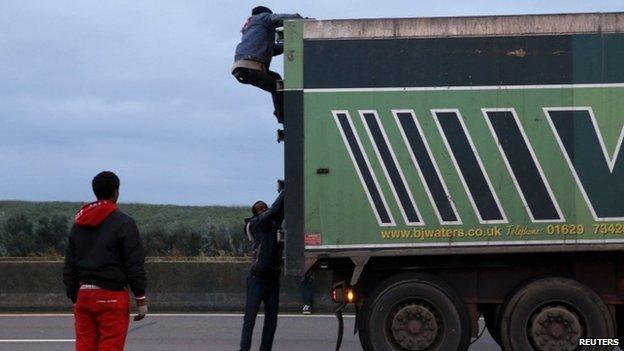
Ms Bouchart said most migrants in Calais were from Africa and the Middle East
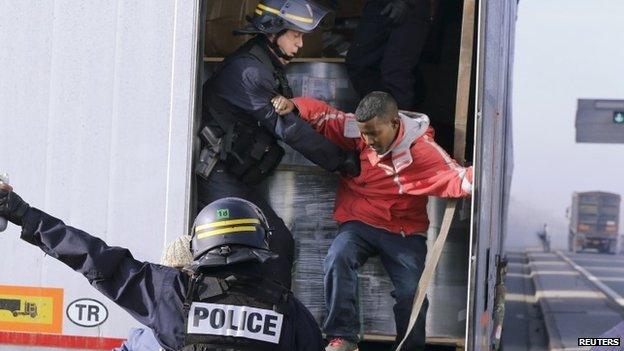
They were becoming more aggressive and harassing local residents, she told MPs
Ms Bouchart estimated that 2,500 illegal immigrants were now living in Calais and that most were Eritrean, Ethiopian, Sudanese, Syrian, Egyptian, Lebanese, Iranian and Iraqi.
Calais was suffering problems from "a lot of mafia and traffickers in this population", Ms Bouchart said.
She added: "There hasn't been a message from the British government or anywhere else that it's not El Dorado."
Asked by the committee's chairman, Labour MP Keith Vaz whether the UK was seen as "a soft touch for those that want to come here", she replied: "Oui."
'Favourable regime'
Ms Bouchart, speaking via an interpreter, added: "You have a much more favourable regime in Britain than other countries. The second thing is the entitlement to benefits of £36 which are given to asylum seekers or migrants, which is a huge amount for people who have nothing in their lives."
.gif)
Ms Bouchart said the "real magnet is the benefits that are perceived in Great Britain".
The official UK border was moved to France in 2003 in an effort to stop illegal immigrants reaching British soil to claim asylum.
'Adversely affected'
This was recently reinforced with fencing previously used for security at a Nato conference. But Ms Bouchart said: "The fence makes everybody laugh."
Some 7,500 migrants have been arrested in Calais this year. The UK has agreed to contribute £12m (15m euros; $19m) to help manage the situation.
UKIP said it had sympathy with Ms Bouchart at having to deal with the disturbances in Calais but the UK needed to send a message that "its streets are not paved with gold".
"From her experience it is evident that even though Britain has not signed the Schengen Agreement, this country is adversely affected by the lack of European and French action on migration," said the party's immigration spokesman MEP Steven Woolfe.
"However, the problem she highlights is not one of the British welfare system, but of the way in which it can be misused.
"Welfare in the UK should be there for our own citizens, who have paid in, or whose family have paid in. It is not something for anybody turning up at our borders to be able to access."
Welfare spending
The benefits that EU migrants can claim in another EU country vary across the 28-nation bloc but certain basic rules are enshrined in EU law.
The UK does not rank highest in terms of total spending on social security per inhabitant.
According to the EU statistics agency Eurostat, the UK spent nearly £6,660 (8,000 euros) in 2010, with France, Germany, Denmark and the Netherlands all spending more than 9,000 euros.
At the other end of the scale, spending in Bulgaria and Romania was below 2,000 euros.
In the UK, a bigger portion of welfare is funded by the state than is the case in Poland, France, Germany or the Netherlands. In those countries, more is funded from individual and employer contributions with benefits more closely linked to previous earnings.
On the other hand, in several countries, including the Republic of Ireland, Sweden and Denmark, the share of state funding is higher than in the UK.
- Published23 October 2014
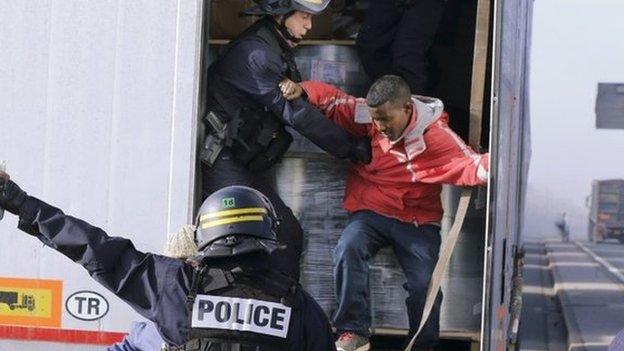
- Published17 October 2014
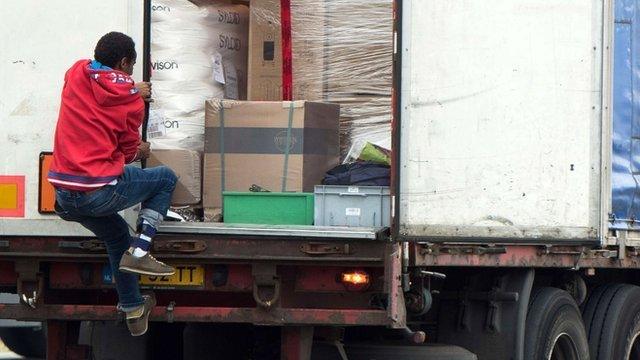
- Published3 November 2014
